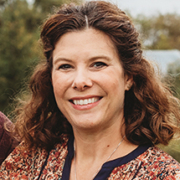 |
Are we modeling kindness for our children?
“Forming character in children combines parental instruction and modeling,” notes Kenneth Kremer in his book Embracing Godly Character. “When parents lead a moral life, God gives them many opportunities to be godly examples for their children. But the models we provide will never be perfect, because all parents are sinners. Our children need to be able to see us finding peace from our guilt and receiving God’s assurance that we are forgiven.”
This month’s article gives us a real-life example of Kremer’s words. Read on and see if you relate to Nicole Smith’s story as much as I do. Have your own parenting story to share? Send it to me at [email protected].
Nicole Balza
“Use kind words, gentle hands, and find someone who needs a friend today,” I said to my son as I dropped him off at the gym day care.
“I will, Mommy, I will be kind today. I will share,” he replied as he bounced away gleefully.
Kindness with our children
It is so important to me that my kids are kind; in fact, sometimes I think I place a little too much emphasis on it. In a world that so desperately needs more kindness, I want to make sure I’m raising boys who love God and love others unconditionally.
For as much as I give verbal reminders, true kindness is shown by modeling the behavior—seeing kindness in action. So when my son reminded me, “You need to be kind, Mommy!” when I was asking him to do something, it made me stop in my tracks.
How often am I really modeling kindness for my sons?
“Don’t do that.”
“Hurry up!”
“Get your shoes on, NOW!”
Commands that are often heard throughout our day blare like sirens in my brain when I lay down at night. Am I nurturing my boys and showing them kindness?
Kindness with our spouses
Recently my husband and I—just the two of us—went out on our first date in more than eight months. We have an eight-month-old baby at home, so I’ll let you do the math. To be honest, it felt like a chore to get that date planned. It seems the longer you don’t give a relationship proper nurturing, the harder it is to get back to that baseline foundation. Once we were out, we had a blast, but it’s the getting out that is hard right now.
At one point during our date, I found myself apologizing for not expressing gratitude enough. The truth is he works really, really hard so that I can stay home with our boys. We both work hard to make our home what it is, but stress can take its toll on each of us.
Jesus quoted words from Genesis, “A man will leave his father and mother and be united to his wife, and the two will become one flesh” (Matthew 19:5).
When is the last time we felt we were a united front or on the same exact page? When is the last time we were truly “one”? I wondered.
Like most couples with young kids, we are sleep-deprived and over scheduled. Many evenings and weekends are jam-packed with obligations, home improvement projects, grocery shopping, cleaning, bathing our children, and keeping them alive. I admitted honestly to him, “You know, I wonder what our marriage would be like if I spent as much time working on being a better wife as I do trying to be a better parent.”
Just like my kids feel they can be sassy and defiant to me, I often feel I can be sarcastic and harsh with my husband. That’s never easy to admit, but the more and more I think about the example I want to set for my children, I recognize that I need to start with me.
Power in our weakness
This admission may seem like I’m airing out a vulnerable weakness, and if that’s how you see it, you’d be correct. The truth is there are many days I wonder if God picked the right woman for the job. Raising kids in a sinful world is no joke!
In her book You Are Free, Rebekah Lyons says, “God demonstrates his power through our frailty. In fact, this is the only thing we can boast in: His power is made perfect and on full display in our never-enough-ness. When we are weak, we are actually made strong in Christ Jesus” (2 Corinthians 12:9,10).
God nurtures us in the most perfect way. First, when I’m falling short, full admission of my weakness and asking God for forgiveness helps me seek forgiveness from my husband, my kids, or anyone else I’ve wronged. His forgiveness sets me back on the path he created for me.
So, while modeling kind words, gentleness, and love is extremely important in raising empathetic and God-fearing boys, so is admission of sin and forgiveness. Recognizing that I’m not a perfect wife and mother doesn’t make me want to give up, but rather helps me recognize that I need God more than ever and makes me want to try better next time. A heart full of thankfulness for Jesus’ love on the cross motivates me to display that love in all my relationships.
It’s not always easy to admit weakness (sometimes the list feels so long that I don’t know where to even begin), but I’ve regularly been asking God to show me areas of my life that I need to work on, areas that could use a little nurturing. My son pointing out that I wasn’t using kind words could have made me angry, but it didn’t. I believe God was using that sweet boy to kindly point out that Mommy needs to remember that “the mouth speaks what the heart is full of” (Luke 6:45).
Lyons also writes and reminds us to take action, “God delights in us. He doesn’t want us to live in bondage. . . . He comes and says, ‘Let’s nail this thing. Let’s not dance around it, perform around it, or seek validation to make it feel better. Let’s just go after it.’ ”
Strength from God
So now, instead of just repeating my mantra when I drop my son off to play with other children, we speak it every morning, together, as a reminder for us both: “Today we will try our hardest to use kind words, gentle hands, and to be a good friend. With God’s help, we can do it!”
God’s calling to nurture and love my husband and these boys doesn’t mean that every day will be easy, but he has fully equipped me with Christ’s example and his promise that we are in this together.
Extra Content
Character formation can be messy
“Though the plan for character formation, along with the tools to make it happen, come from God, the process doesn’t always go smoothly. Sometimes it isn’t even linear. Character usually forms in a herky-jerky rhythm, with awkward starts and unexpected fits of regression. It can be clumsy, uncomfortable, challenging, frustrating, disappointing, depressing, costly, and messy. This is because human relationships can be messy. Nonetheless, character never forms in a vacuum. Our relationships, rooted in our relationship with our loving Lord Jesus, are the critical mass that God uses to get the job of character formation done. Our homes are His preferred culture for getting a good head start.” Excerpt from the book Embracing Godly Character: The Christian Community’s Response to a Godless Culture by Kenneth Kremer, pp. 42,43. Available through Northwestern Publishing House at nph.net or by calling 800-662-6022. $14.99.
Author: Multiple authors
Volume 106, Number 9
Issue: September 2019
- Parent conversations: How can parents and kids manage stress?
- Parent conversations: What do your prayers for your children include?
- Parent conversations: How do we resist making our parenting law-based?
- Parent conversations: What Bible passages do you turn to most as a parent?
- Parent conversations: How can we help kids develop positive, healthy habits?
- Parent conversations: What tactics do you use to encourage children to tackle difficult tasks?
- Parent conversations: How can we model good listening skills for our kids?
- Parent conversations: How do we help our kids move on from mistakes?
- Parent conversations: How can we instill gratitude in our children?
- Parent conversations: How can parents find the balance between being too restrictive and too permissive?
- Parent conversations: How can we teach kids to be good friends?
- Parent conversations: What life skills will help young people as they transition to adulthood?
- Parent conversations: How do we discuss death with our children?
- Parent conversations: What does it look like for a father to be a strong Christian leader?
- Parent conversations: How can we help young adults stay engaged in the church?
- Parent conversations: What do parents need to know about video games?
- Parent conversations: How do parents not let worry get the best of them?
- Parent conversations: How do we teach our kids to value all people?
- Parent conversations: When parenting philosophies differ
- Parent conversations: How can we help today’s overwhelmed teens?
- Parent conversations: How can parents maintain a healthy marriage?
- Parent conversations: You might be a Lutheran parent if . . .
- Parent conversations: Parenting post–high school: What is a parent’s role?
- Parent conversations: How can families use the hymnal in their worship life at home?
- Parent conversations: What should Christian parents teach their children about gender?
- Parent conversations: What is vocation? How does it apply to parenting?
- Parent conversations: Why do siblings fight? How should I react when they are fighting?
- Parent conversations: How do we teach children resilience?
- Parent conversations: How do I approach vaccines as a Christian parent?
- Parent conversations: How can I explain the Sixth Commandment to a young child?
- Parent conversations: How can I help my child have an optimistic outlook?
- Parent conversations: What if we can’t follow our Christmas traditions this year?
- Parent conversations: What are ways to foster a rich prayer life in children?
- Parent conversations: How can I let the gospel shine as I parent?
- Parent conversations: How should I handle a child’s separation anxiety?
- Parent conversations: How should families prepare to go back to school?
- Parent conversations: How does a teen’s brain work?
- Parent conversations: How much should I monitor my child online?
- Parent conversations: How can parents reassure children during an uncertain time?
- Parent conversations: How can I stay calm when my child is out of control?
- Parent conversations: Should I give something up for Lent?
- Parent conversations: How can I keep my child engaged in attending church?
- Parent conversations: How can we help a stressed-out kid?
- Parent conversations: How can we nurture a proper view of “stuff”?
- Parent conversations: How involved should parents be in a child’s homework?
- Heart to heart: Parent conversations: Are we modeling kindness for our children?
- Heart to heart: Parent conversations: What’s the best parenting advice you’ve received or given?
- Heart to heart: Parent conversations: How should we handle it when people undermine our parenting decisions?
- Parent conversations: How can we prepare children for summer camp?
- Heart to heart: Parent conversations: What’s a parent’s role as a child dates?
- Heart to heart: Parent conversations: How do parents find contentment?
- Heart to heart: Parent conversations: How can we help a family with a sick parent?
- Heart to heart: Parent conversations: How can parents model healthy cell phone use?
- Parent conversations: How can we protect kids without scaring them?
- Parent conversations: What does your family’s bedtime routine look like?
- Parent conversations: What do I need to consider before I give my child a cell phone?
- Parent conversations: How can we teach gentleness and strength at the same time?
- Parent conversations: What should we do when our children grow silent?
- Parent conversations: What should we teach our children about the Reformation?
- Parent conversations: Do we want our children to be leaders or followers?
- Parent conversations: How does a parent’s role change over time?
- Parent conversations: How should I handle a disagreement with my child’s teacher?
- Parent conversations: What are the building blocks of a strong parent/child relationship?
- Parent conversations: What is our goal as parents?
- Parent conversations: What Christmas traditions do you cherish in your family?
- Parent conversations: How can we raise a generation that cherishes life?
- Parent conversations: What are the best Bible story books for family devotions?
- Parent conversations: Why should children obey their parents?






